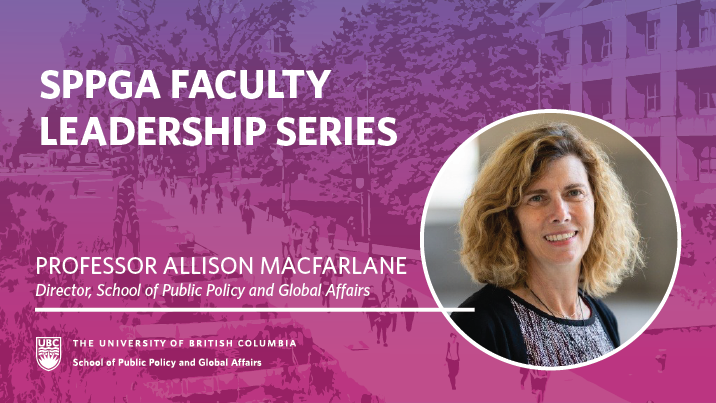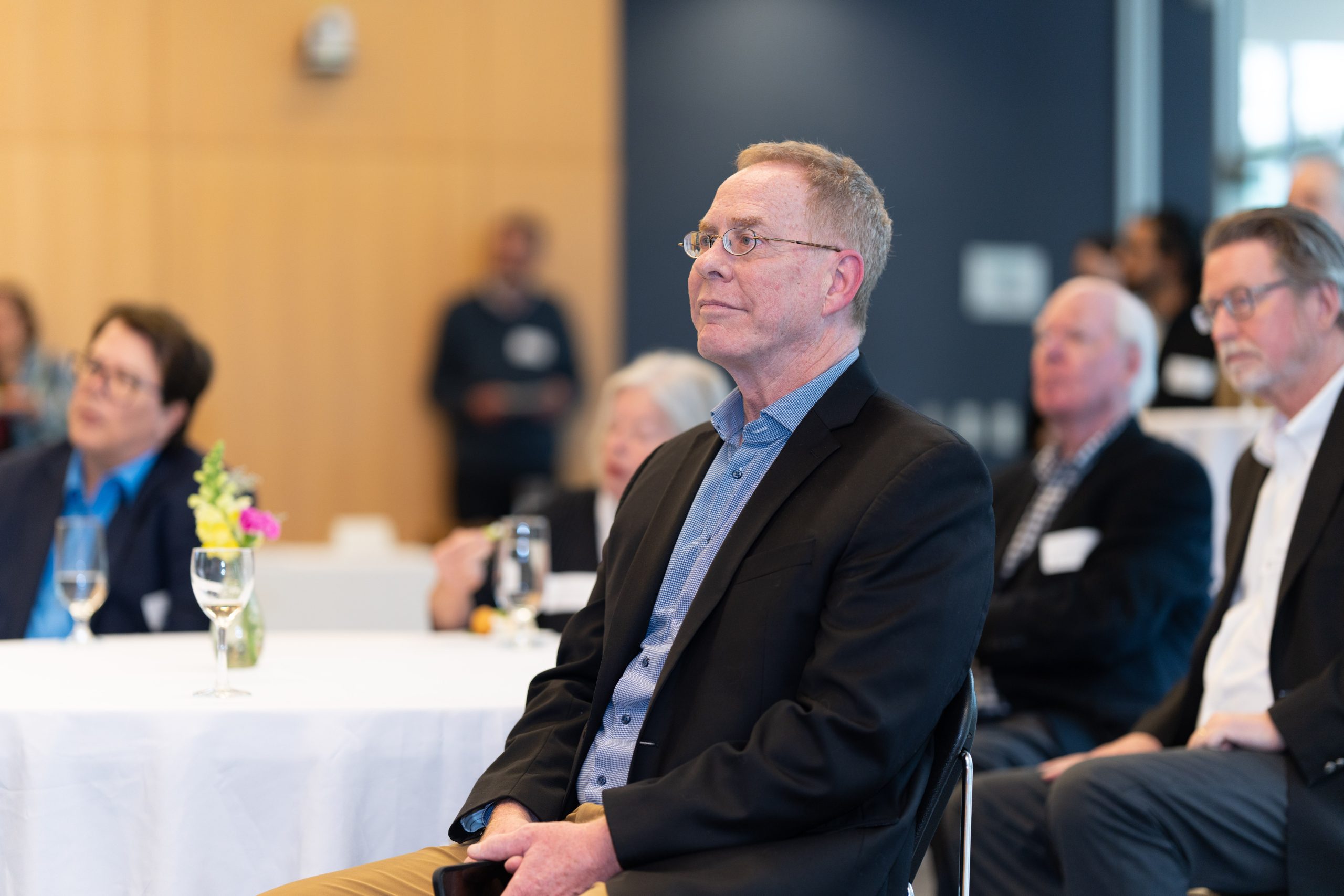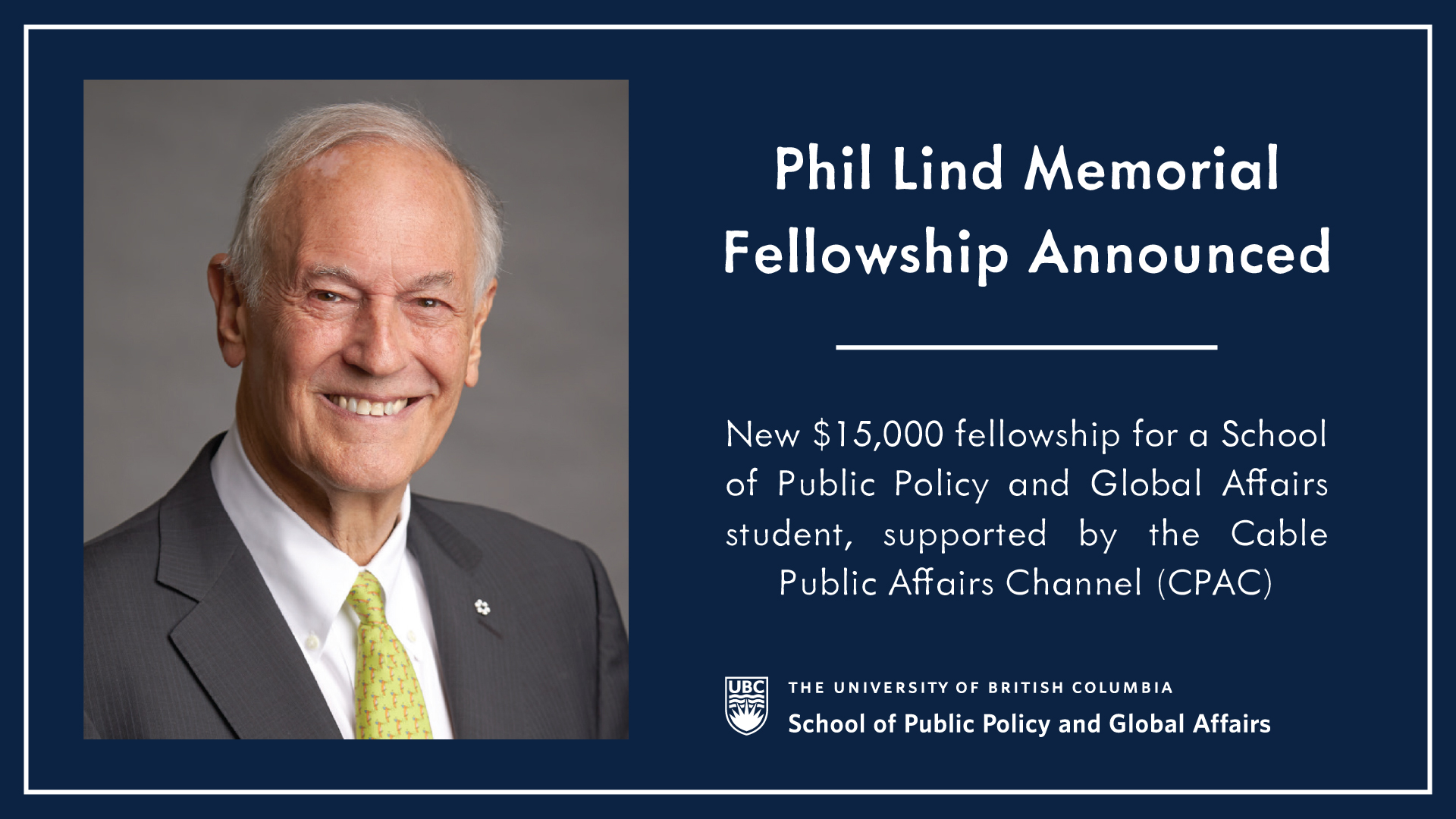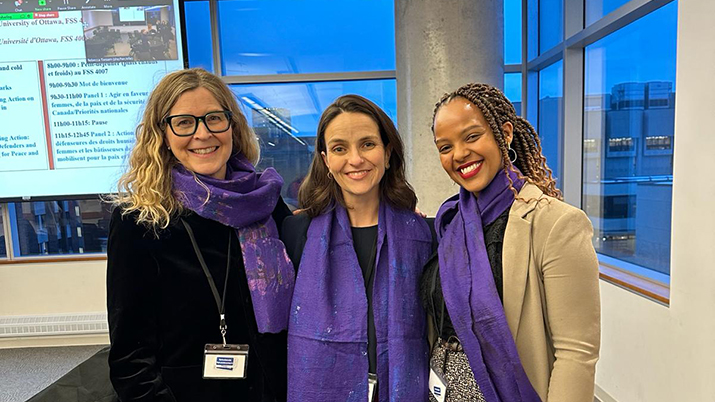

In our SPPGA Faculty Leadership series, meet Dr. Allison Macfarlane, Professor and Director of the School of Public Policy and Global Affairs (SPPGA) in the Faculty of Arts at the University of British Columbia.
In this interview with SPPGA, Director Macfarlane outlines her background and current research, her vision for the school, and the different ways that students, faculty, and policymakers can engage with our work. Learn more below.
SPPGA: Could you tell us a bit about yourself and the positions you have held previously in both academia and policymaking?
I didn’t have a straight trajectory. I went to graduate school in Geology and received a PhD at MIT in Geology. I did field work in the Nepal Himalaya, my first real exposure to working in a very different and fascinating culture. I then taught Geology for a few years before I decided that I wanted to do something more applied with my work.
I received a fellowship at the Radcliffe Institute for Advanced Study at Harvard University and that is when I first stepped my toes into all things nuclear. I worked with Prof. John Holdren, who became President Obama’s science advisor. That experience was very influential in terms of my shift into nuclear energy, nuclear waste disposal, and public policy.
I held a number of other fellowships where I developed expertise on technical and policy aspects of nuclear waste management and impacts of nuclear energy use. In the process, I became a professor of Environmental Science and Policy at George Mason University.
Since I had developed expertise on especially the US nuclear waste disposal situation, I was asked to be one of the 15 members of President Obama’s “Blue Ribbon Commission on America’s Nuclear Future” from 2010 to 2012, which looked at developing a holistic strategy for managing the back end of the nuclear fuel cycle in the United States. The commission was fantastic experience. We had two years of presentations on my main topic of research, nuclear waste, traveled to other countries to understand their experience with the issue, and worked in a truly bipartisan manner.
A few months later, I was asked to become the Chairman of the U.S. Nuclear Regulatory Commission. My appointment was confirmed by the U.S. Senate and appointed by the President (President Obama at the time). I was Chairman for two and a half years, from July 9, 2012 until December 31, 2014.
I then became a professor at George Washington University’s Elliott School of International Affairs and directed their Institute for International Science and Technology Policy until 2020, when I came to UBC.
SPPGA: As an expert in nuclear energy, nuclear weapons, as well as nuclear policy and regulation, what key questions have you addressed in your research?
In my research, I’ve looked at a variety of different issues such as how to manage and dispose of waste materials from nuclear energy and the nuclear weapons complex in the US. I’ve also looked at how to find and site a nuclear waste repository. I’ve examined in detail the site that has been selected in the United States – at Yucca Mountain, Nevada – from both a technical perspective as well as from the social science and policy side.
Lately, I’ve been looking at advanced nuclear reactors — I’m currently sitting on two national academy U.S. National Academy studies that are examining the merits and viability of these reactors. I’ve been interested in some of these reactors’ designs because they are being marketed as new while the base designs are over 70 years old.
I’m also interested in the waste impacts of these reactors: designers sometimes claim there will be less waste, but will there be?
The generally agreed upon disposal model for high-level nuclear waste is to use some kind of deep mined geological repository, at least 500 meters underground. Some countries are making more progress than the United States on this, including Canada. I have a Postdoctoral Fellow who is a geologist, Zoe Braden. She’ll start looking at some of the technical issues associated with the Canadian sites.
I’m also interested in the public engagement part of the siting process. We have been doing interviews and engaging with people who live in areas under consideration for a low to intermediate level waste facility in Australia.
SPPGA: Please tell us about your vision for the UBC School of Public Policy and Global Affairs. What makes us different from other public policy schools? What are our areas of strength?
My vision is that SPPGA will become one of the most influential and go-to schools of public policy and global affairs in North America.
I think we’ve got a great set of faculty to get there, and many of them are already quite influential and doing cutting edge work.
We have an area of excellence in science and technology policy, largely focused on climate change and energy. We have a long established area of strength in Asia policy, especially, China, Southeast Asia, and South Asia. We’re growing in development, public health, and gender equality. These are some of the strengths of the school.
SPPGA: What should prospective students know about our professional Master of Public Policy and Global Affairs (MPPGA) program at UBC? How do we train future policymakers and global change makers to address the issues they care about?
We are a dynamic and active school of public policy and global affairs, and we provide a rigorous and broad training for students interested in a career in public policy and global affairs. One of our real pluses is the practical training that students receive, not only in terms of internships and co-ops but also during the Global Policy Project, where students form teams and do real policy work for a client.
I think all of that together gives students a well-rounded education, and that’s what we hear from our graduates. We have five cohorts of alumni now so it’s great to have these ambassadors out there working in fantastic policy roles around the world.
SPPGA: How can current students, faculty, and policymakers connect with the school and its programs?
We are starting a SPPGA Practitioner Fellowship program where we will be hosting one or two practitioners in residence every year, for varying lengths of time. The practitioners will be interacting with faculty and students while honing their own expertise in an area of knowledge that’s of interest to them and their careers.
We currently have various policy practitioners who teach in our program, give seminars and workshops, and collaborate with faculty on different areas of research, which shows there’s quite a few ways that policy practitioners can be involved in SPPGA.
In terms of UBC students, there are a variety of ways to get involved in the research programs of individual faculty members. SPPGA offers programs like the Liu Scholars Program, the new Fellows program at the Institute of Asian Research, and the Phil Lind Initiative, which is focused on U.S. studies.
Regarding UBC faculty interested in connecting with us, they can become Faculty Associates, collaborate on research, or teach in our MPPGA program.
We also have different centers and initiatives so there are many ways that students, faculty, policymakers, and interested community members can connect with our research, programs, and events.
We look forward to growing our SPPGA community.
Thank you, Dr. Macfarlane.


